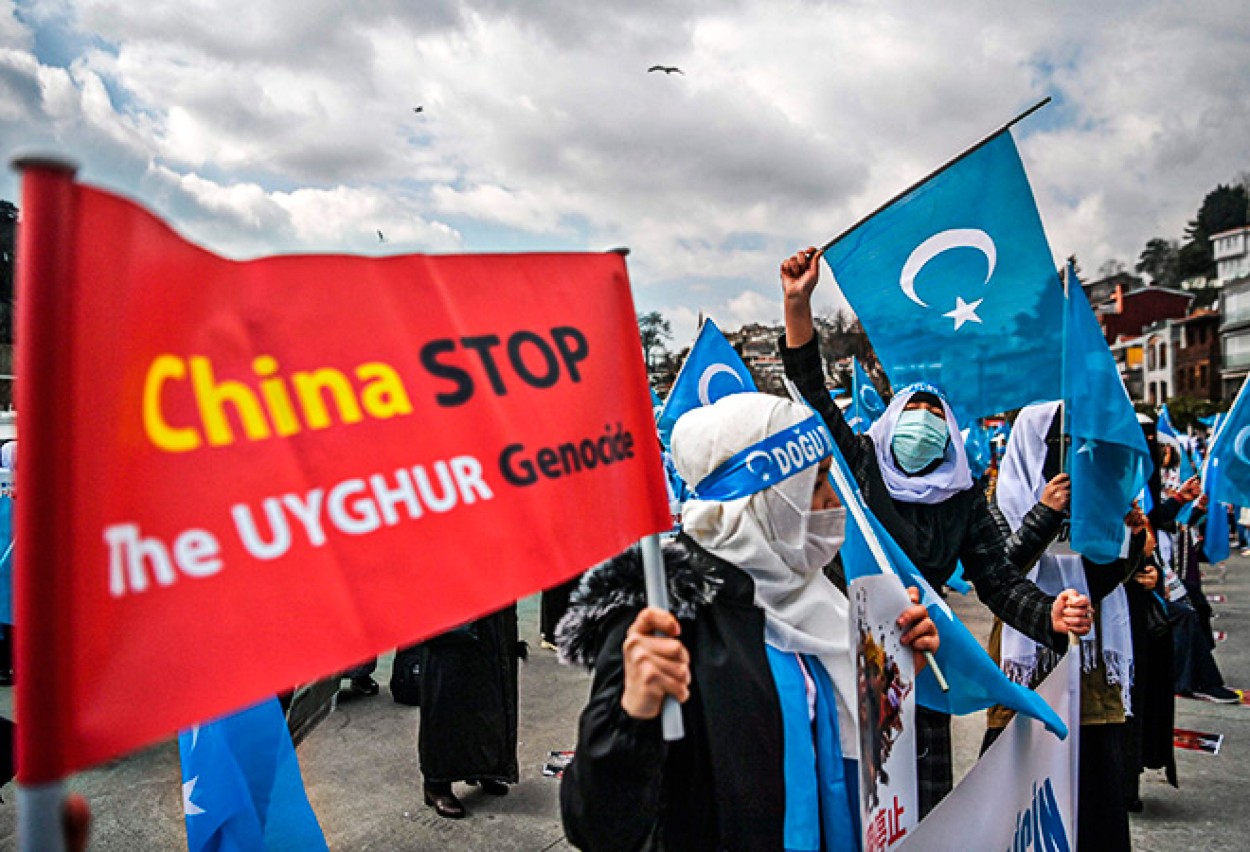Proposed changes to a Chinese public security law to criminalize comments, clothing, or symbols that “undermine the spirit” or “harm the feelings” of China have triggered the concern of legal experts in China, who say the amendments could be used arbitrarily.
China proposes a ban on clothing that ‘hurt nation’s feelings,’ confusing everyone. The proposed law does not explicitly define what actions or expressions would be considered in violation of the prohibiting law.
The contentious clauses of the draft law suggest that people found wearing clothing or symbols that “undermine the spirit or hurt the feelings of the Chinese nation” could face detention for up to 15 days and fines of up to 5,000 yuan (US$680).
Similarly, those who create or disseminate articles or speeches under this category could face the same punishment.
Questions Arise
The BBC reported that this move has raised concerns about potential repercussions and a lack of clarity regarding what constitutes a violation. This ambiguity has led to a chorus of voices, including social media users and legal experts, calling for greater transparency to prevent potential overreach and excessive enforcement.
Online discussions are rife with questions about how law enforcement authorities would determine when the “feelings” of the nation are “hurt.”
This ambiguity has led to concerns about potential abuse of power. For instance, one user on the Chinese social media platform Weibo questioned whether wearing a suit and tie, which has Western origins, could be construed as hurting national feelings.
For example, how will the law deal with the 25 million Muslim Uyghurs of Xinjiang whose males and females wear an attire that explicitly describes their ethnic, cultural, and social identity, which is different from that of the Hans (Han Chinese people)?

Why is the Chinese male ruling clique fine with the dress of Western origin, but they will not allow the people to return to their classical attire? This appears to be a contradiction.
Legal experts within China have also expressed reservations about the vague language of the draft law. They argue that such ambiguity could infringe on personal rights and liberties.
Zhao Hong, a law professor at the Chinese University of Political Science and Law, highlighted the risk of law enforcers imposing their moral judgments beyond the scope of the law. She referenced a case from last year where a woman in a kimono was detained in Suzhou, sparking outrage on social media.
We are all aware of how the blasphemy law in Pakistan is frequently abused to the extent that a governor of Punjab province had to pay with his life for upholding humanistic tradition.
The draft law exemplifies a broader trend in China under the leadership of President Xi Jinping. Since coming to power in 2012, Xi has sought to redefine what constitutes a model Chinese citizen.
This includes issuing “morality guidelines” in 2019, encouraging politeness and environmentally friendly travel while emphasizing loyalty to Xi and the Communist Party. The draft law reflects a continued push to regulate cultural expressions and behaviors.
Why The New laws
What necessitates bringing in new laws, particularly in public security? Where and how is China’s public security under threat, necessitating the imposition of curbs on civil and individual rights? Chinese civil society asks questions like these.
Read More
Similarly, BBC reported that China’s economy, the world’s second-largest, is facing its most serious setback in a generation. During the past two years, economic growth appears to have been cut nearly in half.
After emerging from the “Zero COVID” policies that Xi Jinping, China’s leader, ordered early in the pandemic, the country now faces a real-estate crisis and faltering confidence from its citizens and overseas businesses.
The problems have sparked debate among economists about whether Xi’s increasingly autocratic regime is to blame, and what a major slowdown could mean for the rest of the world,” wrote Isaac Chotiner in his article ‘Did authoritarianism cause China’s economic crisis?” in The New Yorker edition of September 7.
Apprehensions
Amendments to public security laws could lead to more censorship. One person said on Weibo, “Today they can prevent you from wearing certain clothes, tomorrow they can prevent you from speaking, then the day after they can prevent you from thinking.” That is how totalitarianism works its way into a victimized society.
People question how law enforcers can unilaterally determine when the nation’s feelings are hurt. Controversial as the new laws are, these could be abused and used arbitrarily.
The proposed legal changes also forbid “insulting, slandering or otherwise infringing upon the names of local heroes and martyrs” and vandalism of their memorial statues.
Thus, we find the administration wanting to reach far beyond the dress code and encompass various activities of the people routinely accepted in a regular democracy but taken as a threat to the very foundation of a totalitarian regime. To speak or write critically on the policy and planning of the government is a red rag to the bull.
By the standard outlined in the draft bill, will it also count towards hurting the spirit of the Chinese nation? The slew of proposed laws indicates confusion and chaos in the Chinese think tanks about reconciling Xi’s authoritarianism with the spirit of freedom straddling the entire Global South.
- KN Pandita (Padma Shri) is the former Director of the Center of Central Asian Studies at Kashmir University. Views Personal.
- Mail EurAsian Times at etdesk(at)eurasiantimes.com
- Follow EurAsian Times on Google News